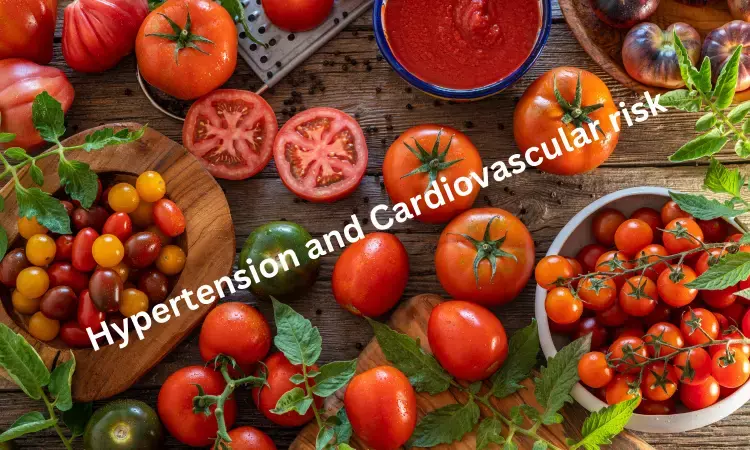- Home
- Medical news & Guidelines
- Anesthesiology
- Cardiology and CTVS
- Critical Care
- Dentistry
- Dermatology
- Diabetes and Endocrinology
- ENT
- Gastroenterology
- Medicine
- Nephrology
- Neurology
- Obstretics-Gynaecology
- Oncology
- Ophthalmology
- Orthopaedics
- Pediatrics-Neonatology
- Psychiatry
- Pulmonology
- Radiology
- Surgery
- Urology
- Laboratory Medicine
- Diet
- Nursing
- Paramedical
- Physiotherapy
- Health news
- Fact Check
- Bone Health Fact Check
- Brain Health Fact Check
- Cancer Related Fact Check
- Child Care Fact Check
- Dental and oral health fact check
- Diabetes and metabolic health fact check
- Diet and Nutrition Fact Check
- Eye and ENT Care Fact Check
- Fitness fact check
- Gut health fact check
- Heart health fact check
- Kidney health fact check
- Medical education fact check
- Men's health fact check
- Respiratory fact check
- Skin and hair care fact check
- Vaccine and Immunization fact check
- Women's health fact check
- AYUSH
- State News
- Andaman and Nicobar Islands
- Andhra Pradesh
- Arunachal Pradesh
- Assam
- Bihar
- Chandigarh
- Chattisgarh
- Dadra and Nagar Haveli
- Daman and Diu
- Delhi
- Goa
- Gujarat
- Haryana
- Himachal Pradesh
- Jammu & Kashmir
- Jharkhand
- Karnataka
- Kerala
- Ladakh
- Lakshadweep
- Madhya Pradesh
- Maharashtra
- Manipur
- Meghalaya
- Mizoram
- Nagaland
- Odisha
- Puducherry
- Punjab
- Rajasthan
- Sikkim
- Tamil Nadu
- Telangana
- Tripura
- Uttar Pradesh
- Uttrakhand
- West Bengal
- Medical Education
- Industry
Tomatoes in diet may reduce hypertension and cardiovascular disease risk

Tomatoes is an important ingredient in most foods and salads, its the major dietary source of the antioxidant lycopene, which has been linked to many health benefits, including reduced risk of heart disease and cancer.
Including tomato in daily diet, tomato-based products, is effective in preventing and managing hypertension. Higher tomato intake reduces hypertension risk by 36%, and moderate consumption lowers blood pressure, especially in grade 1 hypertension according to study findings published in European Journal of Preventive Cardiology.
The current study assesses whether tomato consumption (Solanum lycopersicum L.) is associated with Systolic (SBP) and Diastolic Blood Pressure (DBP), and the risk of hypertension in a prospective 3-year longitudinal study in older adults at high cardiovascular risk. Clinical studies report conflicting evidence on the effects of the consumption of tomatoes on blood pressure, and there are limited data from epidemiologic studies.
Researchers in the study carried out within the PREDIMED (Prevención con Dieta Mediterránea) trial involving 7,056 (82.5% hypertensive) participants. The consumption of tomato (g/d) was measured using a validated Food Frequency Questionnaire (FFQ) and categorized into 4 groups: lowest (<44 g), intermediate (44-82 g), upper-intermediate (82 -110 g), and highest (>110 g). Multilevel linear mixed models examined blood pressure and tomato consumption association. Cox proportional-hazards models analyzed hypertension risk in 1,097 non-hypertensive participants, studying risk reductions versus the lowest tomato consumers.
The key findings of the study are
• An inverse association between tomato consumption and diastolic blood pressure was observed between the intermediate group β = -0.65 mmHg [95% CI:-1.20, -0.10] and the lowest consumption group.
• A significant inverse association was observed for blood pressure in grade 1 hypertension participants in the intermediate tomato consumption group.
• The risk of hypertension decreased with consumption of >110 g/d tomato (highest vs lowest consumption; HR, 0.64 [95% CI, 0.51–0.89]).
Researchers concluded that “Tomato consumption, including tomato-based products, is beneficial in preventing and managing hypertension. Higher tomato intake reduces hypertension risk by 36%, and moderate consumption lowers blood pressure, especially in grade 1 hypertension.”
Reference: David Murcia-Lesmes, Inés Domínguez-López, Emily P Laveriano-Santos, Anna Tresserra-Rimbau, Sara Castro-Barquero, Ramón Estruch, Zenaida Vazquez-Ruiz, Miguel Ruiz-Canela, Cristina Razquin, Dolores Corella, Jose V Sorli, Jordi Salas-Salvadó, Karla-Alejandra Pérez-Vega, Enrique Gómez-Gracia, José Lapetra, Fernando Arós, Miquel Fiol, Luis Serra-Majem, Xavier Pinto, Emilio Ros, Rosa M Lamuela-Raventós, Association between tomato consumption and blood pressure in an older population at high cardiovascular risk: observational analysis of PREDIMED trial, European Journal of Preventive Cardiology, 2023;, zwad363, https://doi.org/10.1093/eurjpc/zwad363.
MSc. Neuroscience
Niveditha Subramani a MSc. Neuroscience (Faculty of Medicine) graduate from University of Madras, Chennai. Ambitious in Neuro research having worked in motor diseases and neuron apoptosis is interested in more of new upcoming research and their advancement in field of medicine. She has an engrossed skill towards writing and her roles at Medical dialogue include Sr. Content writer. Her news covers new discoveries and updates in field of medicine. She can be reached at editorial@medicaldialogues.in
Dr Kamal Kant Kohli-MBBS, DTCD- a chest specialist with more than 30 years of practice and a flair for writing clinical articles, Dr Kamal Kant Kohli joined Medical Dialogues as a Chief Editor of Medical News. Besides writing articles, as an editor, he proofreads and verifies all the medical content published on Medical Dialogues including those coming from journals, studies,medical conferences,guidelines etc. Email: drkohli@medicaldialogues.in. Contact no. 011-43720751


